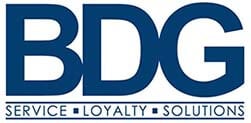Recent News
BDG Shareholder Brian J. Bergman has been honored in the Los Angeles Business Journal’s 2023 “Top 100 Lawyers,” a prestigious list that recognizes Los Angeles attorneys for their impressive achievements and impact in the field of law.
As head of BDG’s Real Estate Litigation practice, Brian’s focus is primarily in the areas of eminent domain, inverse condemnation, real estate, environmental, and land use litigation. He represents public entities and private clients across California, regularly crafting winning arguments and handling claims, disputes, and litigation matters at the state and federal levels. Brian has earned a well-deserved reputation for resolving claims alleging public liability in advance of litigation.
Speaking Engagements
BDG Law Group shareholder Brian J. Bergman will be featured speakers at the IRWA 31st Annual Valuation Seminar on Thursday, May 25, 2023 at the Quiet Canyon Conference and Event Center in Montebello, California.
They will present; “Environmental Contamination and Stigma Issues in Eminent Domain Valuations.”
The International Right of Way Association (IRWA) is a global, member-led organization of dedicated professionals within the right of way industry. Established in 1934 as a not-for-profit association, IRWA’s purpose has always been to improve people’s quality of life through infrastructure development.
IRWA provides invaluable connections through its network of over 7,000 members across 15 countries. The Association actively promotes career growth through education and credentialing opportunities. Recognized as a leading education provider in the industry, IRWA elevates right of way professionals to make a powerful difference in their communities.
——————————————————–
BDG Law Group shareholder Brian J. Bergman will be featured speakers at the Appraisal Institute’s 55th Annual Litigation Seminar on November 3, 2022 in Cerritos, California. They will present; “Environmental Contamination Issues in Eminent Domain Valuations.” The Appraisal Institute is a global professional association of real estate appraisers, with over 16,000 professionals in almost 50 countries throughout the world. The mission is to empower valuation professionals through community, credentialing, education, body of knowledge and ethical standards. For nearly 90 years, the Appraisal Institute has been the world’s leading organization of professional real estate appraisers. The organization has led the way in fostering and promoting the highest standards of practice through its designation programs, peer review process, education, research and publishing endeavors.
Our Recent and Current Cases
The following current or recent cases involving public projects are cited as examples by type of issue involved:
- In Riskin v. Downtown Los Angeles Property Owners Association (2022) 2022 Cal. App. LEXIS 219, the California Court of Appeals held that a trial court has the discretion to deny attorney fees under the California Public Records Act (CPRA) despite the mandatory fee provision in the statute.The CPRA (Gov. Code § 6250 et seq.) allows for inspection of public records and provides access to information related to the conduct of people’s business. Adrian Riskin uses public records requests to investigate activities of business improvement districts and the Los Angeles city government. Riskin submitted CPRA requests to the Downtown Los Angeles Property Owners Association (the Association), which is a business improvement district subject to the CPRA. The Association responded to some requests and for others, claimed that the records were exempt from disclosure under the deliberative process privilege. Riskin subsequently filed a petition under the CPRA to compel the Association to produce the requested documents. The trial court granted the petition in part, and the Association appealed from a post judgment order awarding Riskin attorney fees of $71,075.75.The Association argued that the trial court erred in concluding it had no discretion to deny Riskin attorney fees. The appellate court agreed. Under the CPRA, the “court shall award court costs and reasonable attorney’s fees to the requester should the requester prevail in litigation pursuant to this section.” (§ 6259(d).) Although the legislature did not define “prevail”, courts generally use the “standard test” where a plaintiff is a prevailing party if a public record is disclosed only because a plaintiff filed suit to obtain it. However, there can be instances in which a plaintiff obtains documents as a result of the litigation that are so minimal or insignificant that would justify a finding that a plaintiff is not a prevailing party. Following a discussion of prior decisions applying the minimal or insignificant standard, the appellate court held that “the minimal or insignificant standard is applicable when the requester obtains only partial relief under the CPRA.” Accordingly, in order to determine whether a plaintiff is a prevailing party, the court must inquire into whether the documents obtained were so minimal or insignificant to justify a finding that the plaintiff did not prevail. The court reversed the award of attorney fees to Riskin and remanded the case to permit the trial court to exercise its discretion as to whether Riskin is a prevailing party.
-
Public Entity ADA Law
– On November 19, 2021, our attorney, Matt Hicks prevailed before an en banc panel of the Ninth Circuit in the matter entitled D.D. v. Los Angeles Unified School District, __ F.4th __, Lexis 34554, WL 5407763 on the issue of whether a school student had properly exhausted his remedies prior to filing suit in federal court on Title II Americans with Disabilities Act claims. The en banc decision reversed a prior 2-1 ruling against Mr. Hicks’ client.
– On December 8, 2021, Mr. Hicks prevailed in a federal court jury trial before the Hon. George Wu on claims brought by a middle school student and her mother against his school district client for alleged retaliation in violation of Title II of the Americans with Disabilities Act and section 504 of the Rehabilitation Act. The jury voted unanimously 8-0 for Mr. Hicks’ school district client finding no merit to the retaliation claims. On the lone “failure to accommodate” claim, the jury deadlocked 4-4, which may require a re-trial on that claim.
